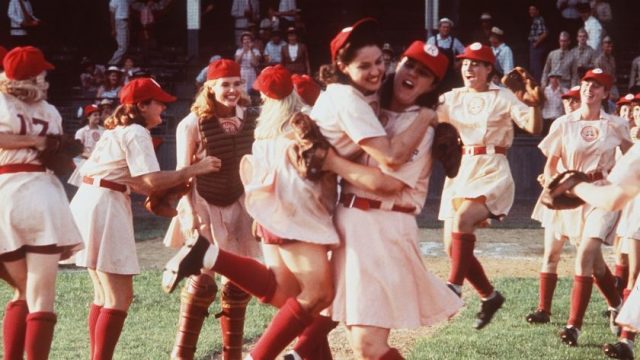This is the second year in a row that we are celebrating March with what I, in a long-ago article, dubbed the Women’s+ Canon. (The “+” was added to be more inclusive of those who don’t fit into a strict gender binary.) “Canon” may have been too formal a term, but the original intention was to distinguish from The Official Film Canon, traditionally set by male critics, with the list of media that is primarily discussed outside it by those excluded from setting the canon by their gender. It’s media that’s ignored, underrated, or flat-out mocked by those who are writing the official lists.
Now, some of the works in question are thought of as “girls’ classics” or similar; L. M. Montgomery is one of the most notable literary figures of Canada, but it’s still with the assumption that her books were only for women and probably just for girls at that. I’m not sure how many men, even in Canada, actually read her books or watch the works based on them. That isn’t our intention here. By celebrating the works for a month, we’re hoping to bring them to attention not as works for women but as works that women already appreciate that deserve a wider audience.
It’s probably not surprising that these works usually feature female protagonists and are created by women. Both in the sense that it’s part of how women see themselves represented and in the sense that there’s a strong believe in our culture that the default is male, and that men will not see themselves in works by and about women but that women should see themselves in works by and about men. There is no reason for this to be true, and one of our hopes is that this will encourage men to explore the works under discussion and start to see themselves in their characters.
I’m going to level with you—we had a problem last year in part because some of you were not as respectful in the comments of an article as I had in last year’s introduction suggested you be. One of our contributors says she was called a liar in the comments of her article, which is something I pretty specifically said not to do. Now, I can’t comment on the accuracy of that claim, since the article in question was deleted, but that’s not the point. The point is that I am once again asking the men who contribute to show respect. Further, if you see a fellow man not being respectful, don’t wait for the women to call him out. Do it yourself.
What we really hope is that this will be a learning experience. If this series has an equivalent anywhere else on the internet, I don’t know about it. No one writing for this series identifies as male; none of the articles will be about the same movies, TV, books, and music that male-dominated articles tend to be about. We really hope that our male members will take this opportunity to consider a perspective not their own. We ask you to listen. Do not argue. Disagreeing is fine, but consider your tone and your words and your specifics.
In fact, to repeat the specific advice I gave last year, “But if you find yourself wondering if your post is mansplaining? Maybe don’t post it.” Which to be blunt is advice you should follow in all your day-to-day actions. Maybe think about why so many more of the regular contributors are male than not-male.


